The Fight for an ICJ Advisory Opinion:
Six Year Campaign for Justice
1
2019: PISFCC begins its campaign for a climate justice advisory opinion

Six years ago, UUSC partner Pacific Island Students Fighting Climate Change (PISFCC) developed a bold and innovative response to climate change. For decades, global leaders acknowledged the reality of the looming climate crisis. But the world’s highest court—the United Nations (UN) International Court of Justice (ICJ)—never pushed for a just and equitable response. A group of 27 students at the University of the South Pacific came together to change this. They founded PISFCC in 2019 with a long-term vision to secure an advisory opinion—informing governments of their obligations to address the climate crisis—from the ICJ.
2019-2021: PISFCC organizes regionally to secure Pacific States’ support for the Advisory Opinion
2

The first stage of any campaign at the United Nations is to organize member states to support your initiative. In the years after its founding, PISFCC worked to get as many countries of the world as possible to join their call for a Climate Justice Advisory Opinion. They began by focusing on Pacific Island nations. These countries have done little historically to contribute to the climate crisis—which is primarily the fault of rich industrial countries polluting the earth with greenhouse gas emissions. Yet, Pacific States are facing some of the worst and most imminent effects of the climate crisis. They have a clear stake in the struggle for an equitable advisory opinion.
3
2019: Vanuatu agrees to back the students’ effort
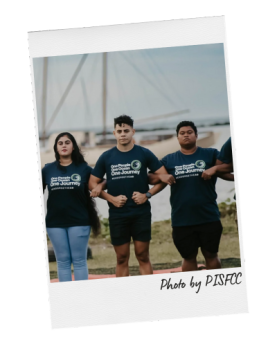
The first UN member state to support PISFCC’s campaign was Vanuatu, a South Pacific Island nation. Their support for PISFCC’s campaign included proposing a formal endorsement at the Pacific Island Forum’s Leaders Meeting.
4
2021: UUSC begins partnership with PISFCC, endorses the AO campaign
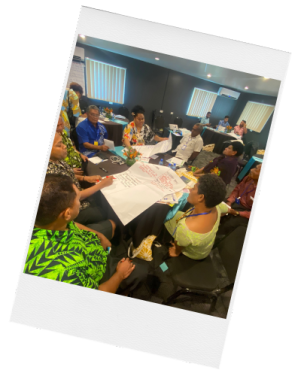
UUSC first learned about PISFCC’s struggle for a climate justice Advisory Opinion (AO) at the Pacific Climate Justice Summit in August 2021. Speaking at this summit—which was intended to develop a shared strategy for Pacific activists in preparation for the next meeting of the UN’s annual climate change conference—PISFCC articulated an inspiring vision to, “take the world’s largest threat to human rights to the world’s highest court of justice.” As PISFCC’s campaign director, Solomon Yeo, put it at the time: “We’re seeking from the world’s highest court an opinion that will carry the weight of the court which we will use to fight climate change.”
5
2021: Youth from across the globe form the World Youth for Climate Justice (WYCJ) as the global arm of the campaign.
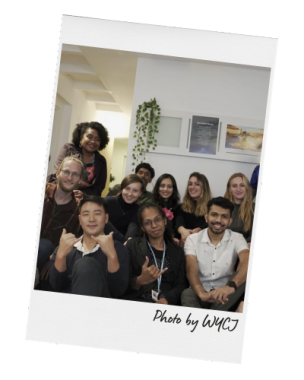
An advisory opinion resolution requires a majority vote of 193 member states. Youth from around the world united to achieve this goal under the youth-led umbrella organization World’s Youth for Climate Justice (WYCJ).
6
2022: PISFCC secures unanimous support from the Pacific Island Forum
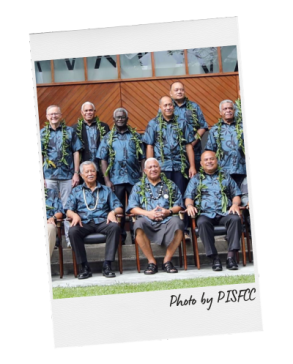
Just three years after beginning their campaign for the AO, PISFCC achieved a major victory in their efforts to secure UN member states’ support for the initiative. In August 2022, the Pacific Island Forum met for its annual Leader’s Meeting. By the end of the meeting, PISFCC earned the unanimous support of the Forum for the advisory opinion. This was a key milestone on the journey to winning the full backing of the UN General Assembly (GA). The Forum’s 18 member states called on the UN GA to pass a resolution to advance PISFCC’s goal of requesting an advisory opinion from the International Court of Justice.
7
March 2022: Campaign shifts focus to all UN member states
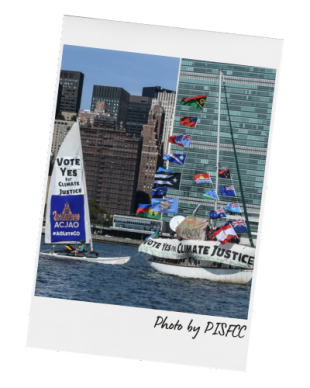
After securing the support of Pacific States, PISFCC turned their attention to the full UN General Assembly. They therefore moved their campaign to New York and started organizing partners across the world to endorse the call for the AO. UUSC met with PISFCC at a UN side event in New York, witnessing their eye-catching strategy to draw attention to the AO campaign. PISFCC organized a flotilla of vessels to sail past the UN headquarters so world leaders would see first-hand youth from around the world demanding a safe and liveable future. UUSC meanwhile worked to organize our members in the United States to back the AO proposal.
July 2022: OACPS decided to support Vanuatu’s campaign for an UNGA resolution
8

The Organization of African, Caribbean, and Pacific States (OACPS), representing 79 Member countries and 1.3 billion people, determined they would support Vanuatu’s campaign for an UN General Assembly (UNGA) resolution. Ultimately 18 nations championed and 132 cosponsored the resolution.
9
2023: UN General Assembly unanimously calls for an ICJ AO
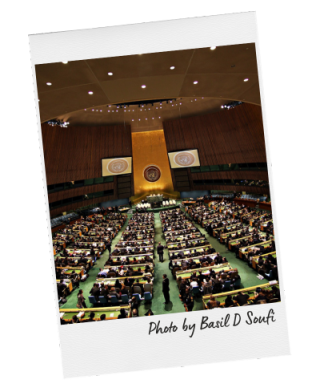
In 2023, PISFCC achieved another extraordinary milestone in their campaign, when the UN General Assembly voted—without any recorded opposition—to request an advisory opinion from the ICJ. This was the first AO request ever to be approved by consensus, meaning that no member state objected to the resolution’s passage. However, two of the world’s largest polluters —the United States and China—did not expressly back the resolution either. We therefore have more work to do to ensure that U.S. leaders come forward to support this campaign. UUSC continues to organize our members to press U.S. officials to back the AO initiative.
10
2023: The World Youth for Climate Justice releases the Youth Climate Justice Handbook
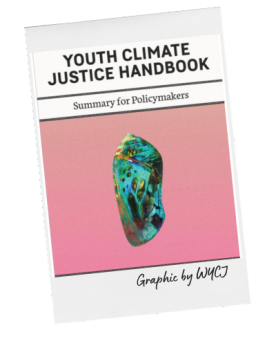
This WYCJ document provided key climate justice legal and policy arguments to encourage strong submissions to the Court.
11
2024: The ICJ receives written submissions to inform its opinion
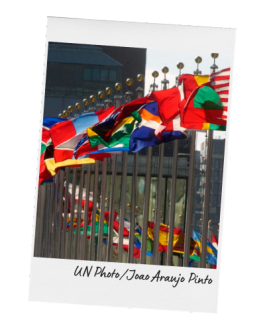
The next step in securing the AO is to equip the court with the information it needs to address the climate crisis. To ensure the ICJ issues the best and most comprehensive opinion possible, PISFCC and its allies pushed states and international organizations to file written and oral submissions to the court, detailing the human rights implications of climate change.The ICJ received 91 written submissions and 62 written comments on those submissions.This makes it the largest case ever before the ICJ.
12
December 2024: Oral hearings begin at the ICJ
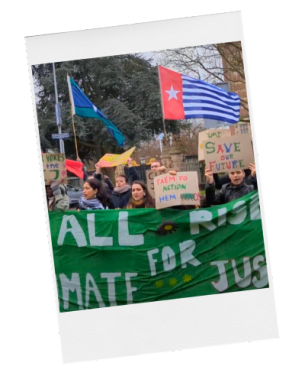
On December 2, 2024, states and international organizations presented oral arguments to the court. PISFCC and its allies worked to ensure that people with lived experience of the climate crisis were on the ground in the Hague for hearings. Witnesses play a limited role in ICJ proceedings, so PISFCC started a digital “Witness Stand” where people around the world can film messages for the judges of the ICJ to encourage them to issue the strongest and most progressive opinion possible. UUSC supported PISFCC and the group’s People’s Assembly, an event that ran concurrently with the ICJ hearing itself.
2025: The ICJ issues its groundbreaking opinion, unanimously holding that States have a legal duty to protect the climate.
13
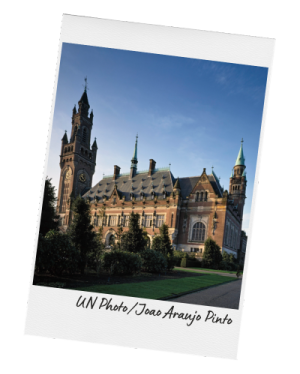
The court rejected arguments States made to categorize climate action as voluntary, and instead stated failure to undertake due diligence to protect the climate would be an internationally wrongful act. Such an act requires reparations for the loss and damage caused. The Court also reaffirmed the right of all people to a clean, healthy and safe environment. Together with the advisory opinions from the International Tribunal on the Law of the Sea and the Inter-American Court on Human Rights, the ICJ AO gives advocates a powerful tool in international climate negotiations, as well as in strategic litigation to force greater action.
14
This Advisory Opinion shifts the course of climate justice by using existing international law to hold polluters accountable, and refine their legal duties to:
Protect people and the planet, always.
Created by Unitarian Universalist Service Committee